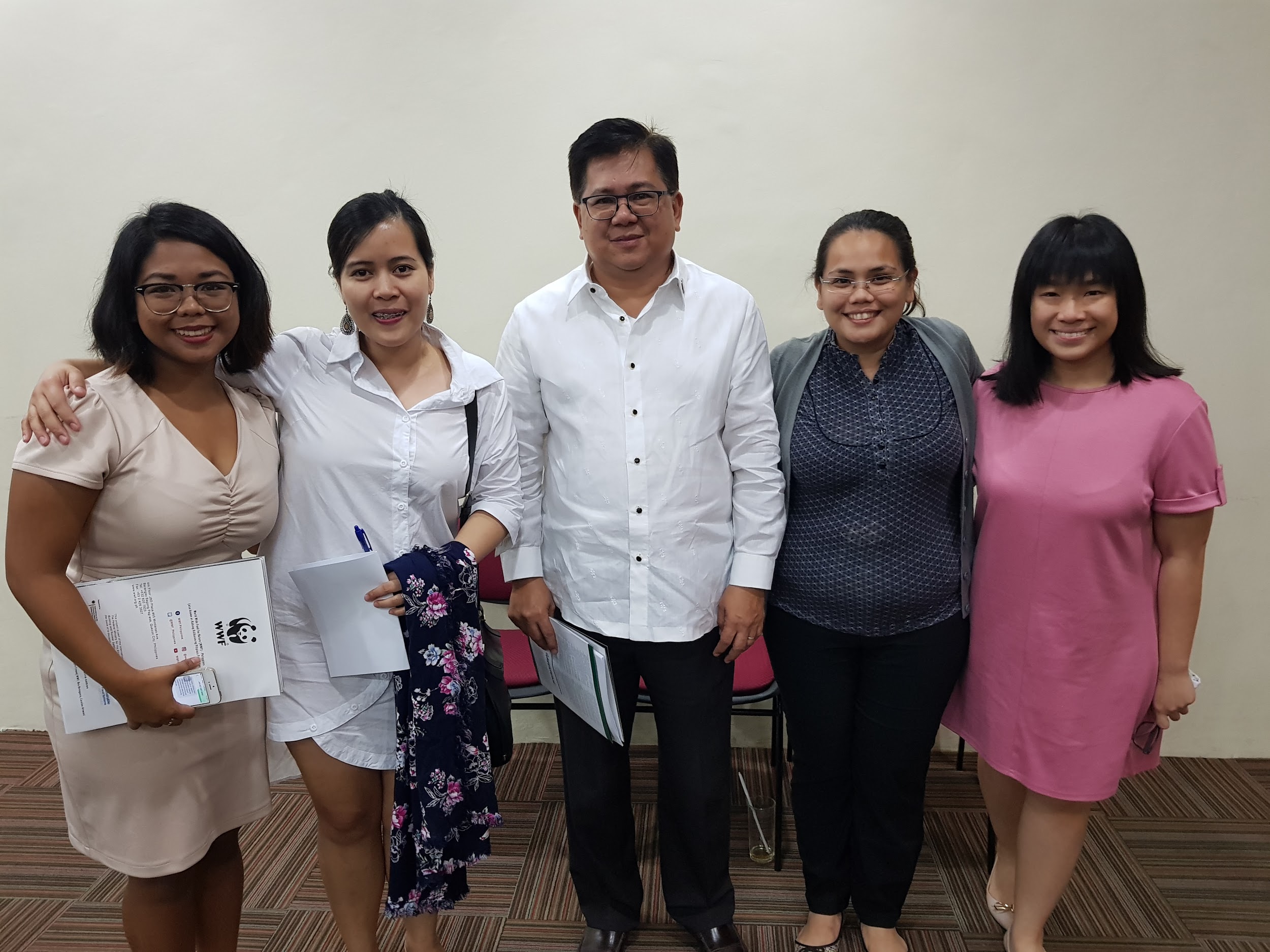A Key Player for National Food Security
October 2017
Hunger is one of the biggest challenges we are currently experiencing, and yet we are producing so much more than we can consume. According to a report conducted by the Food and Agriculture Organization of the United Nations, 1.3 billion tons of food is wasted each year, which proves that on a national level, there is a need to revisit established food systems in order to avoid food loss and food waste, and instead ensure food security. WWF-Philippines, through its pioneer project on sustainable consumption and production, The Sustainable Diner: A Key Ingredient for Sustainable Tourism, and the House of Representatives, through its Special Committee on Food Security, are ready to heed the call for national action through legislation.
Members of The Sustainable Diner project team were invited to join the committee deliberation of the Special Committee on Food Security conducted last October 10, 2017 at Villar Hall, House of Representatives. The deliberation covered the following legislative measures: (1) The Integrated Urban Agriculture Bill, which aims to develop climate resilient communities in the metropolitan areas through the promotion of modern, appropriate, cost-effective, and environmentally safe agriculture technologies to ensure food security, (2) The National Feeding Program For National Nutrition Council Bill, which seeks to develop, create, and implement a nationwide feeding program to alleviate poverty and hunger in the country, and (3) bills seeking to address food waste and food surplus through redistribution and recycling, focusing on the operations of restaurants, hotels, caterers, and supermarket owners.
Ms. Melody Melo-Rijk, Project Manager of Sustainable Consumption and Production in the Philippines, and Ms. Liezl R. Stuart Del Rosario, Policy Specialist for The Sustainable Diner project, served as resource persons for the deliberation, sharing with the committee initial results of the stakeholder analysis conducted during the project launch.
“The committee’s decision to push for these legislative measures is supported by the project team, especially because it has been identified in our analysis that government is seen by both the food service industry and the Filipino dining public as the main enabler for the adoption and practice of sustainable consumption and production principles,” says Ms. Melo-Rijk. “Ensuring food security means pushing for policies which will equip our other stakeholders with the necessary tools and knowledge in order for them to integrate sustainability in their daily dining operations and lifestyles.”
The Sustainable Diner project, under WWF-Philippines’ Sustainable Consumption and Production, is part of the International Climate Initiative (IKI). The Federal Ministry for the Environment, Nature Conservation, Building and Nuclear Safety (BMUB) supports this initiative on the basis of a decision adopted by the German Bundestag.

Members of The Sustainable Diner project team with Hon. Leo Rafael M. Cueva, Chairperson of the Special Committee on Food Security of the House of Representatives.
© Pamela Luber / WWF-Philippines
